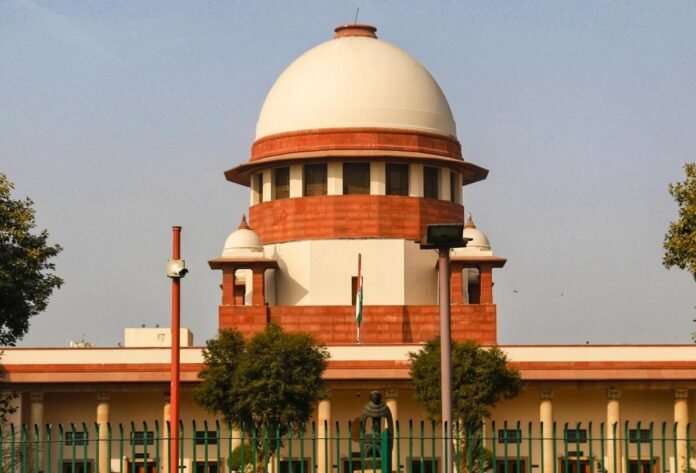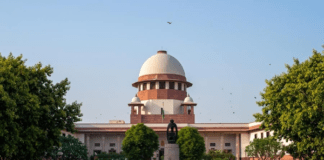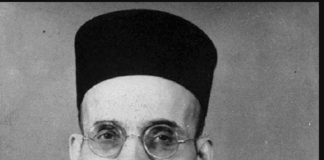Supreme Court mandates examination of one attesting witness under Section 68 of the Evidence Act for a Will’s validity, even if legal heirs aren’t disputing it. | The Legal Observer
In a pivotal ruling, the Supreme Court has emphasised that Section 68 of the Evidence Act cannot be relaxed—even in disputes not involving legal heirs.
The Supreme Court has delivered a significant verdict under Section 68 of the Indian Evidence Act, reaffirming that the examination of at least one attesting witness to a Will is mandatory, regardless of whether the dispute involves legal heirs or not. This ruling underscores the legal rigor required in establishing the authenticity of testamentary documents.
Case Background
The bench, consisting of Justices Aravind Kumar and Sandeep Mehta, adjudicated the matter in Ramesh Chand (D) through LRs vs. Suresh Chand and Anr. Here, the plaintiff-respondent contended that he had acquired property from his father in 1996 via a contract of sale, general power of attorney, affidavit, receipt, and a registered Will. He alleged that his brother, the appellant (Ramesh Chand), initially held the property as a licensee but later sold half of it to a third party illegally.
The appellant, however, claimed an oral gift dating back to 1973 and contended that he had maintained possession since then while challenging the Will’s authenticity.
Legal Issue
The dispute hinged on whether the Delhi High Court erred in dispensing with the statutory requirement under Section 68 simply because the parties in conflict were not legal heirs. The High Court had held that since the appellant was not a legatee but claimed an independent title, the strict probative rules for a Will could be relaxed.
Supreme Court’s Ruling
Rejecting the High Court’s reasoning, the Supreme Court held that Section 68 contains no such exceptions based on the identity of the opposing party or the nature of their claim. The Court observed that the liability to examine at least one attesting witness applies uniformly to every Will presented as evidence.
Even in the absence of a contest between legal heirs, the provision must be complied with. Justice Aravind Kumar noted that the High Court’s approach was “quite contrary to law” in suggesting flexibility to Section 68 based on the type of dispute. Live Law
Broader Legal Context
The ruling aligns consistently with the broader framework governing testamentary documents:
- Section 63 of the Indian Succession Act, 1925, mandates that a Will must be attested by two or more witnesses, each having seen the testator sign or affirm the document in their presence. Indian Kanoon+1
- Section 68 of the Evidence Act, 1872, stipulates that a document requiring attestation cannot be used as evidence unless at least one attesting witness has been examined—provided such a witness is alive and available. Indian KanoonSaji Koduvath Associates
- The Supreme Court has clarified in prior judgments that:
- While both attesting witnesses need not be examined, the one who is examined must be capable not only of proving their own attestation but also the attestation by the other witness to fulfil Section 63 requirements. Indian KanoonNearLawLegal Vidhiya –
- Section 71 of the Evidence Act offers an alternate proof route only if an attesting witness denies or cannot recall attesting. This section cannot be used as a substitute when available attesting witnesses have simply not been called to testify. Indian Kanoon
Implications and Takeaways
This ruling serves as a stern reminder to legal practitioners and courts that procedural safeguards in verifying Wills are non-negotiable. It emphasises that:
- The mere registration of a Will doesn’t excuse adherence to formal proof requirements.
- Courts must ensure that at least one attesting witness is examined before accepting a Will as evidence, without regard to the nature of the contest.
- Alternative proof mechanisms (like Section 71) may apply only when applicable, not as a replacement for due procedure.
Internal Links
This development is vital for readers tracking latest legal news on Wills, Evidence Act interpretations, and judicial standards. Explore related coverage and nuanced analysis on The Legal Observer—both under news and views/insight categories—while keeping tabs on most‑popular legal debates and videos featuring expert commentary.
External Link
For additional video coverage or analysis, check the YouTube channel of The Legal Observer for visual summaries and insights.





